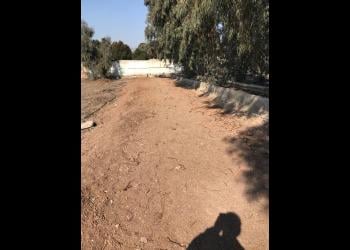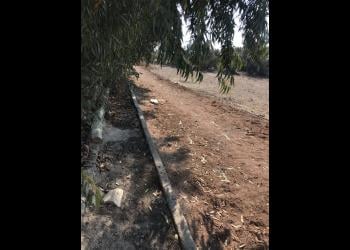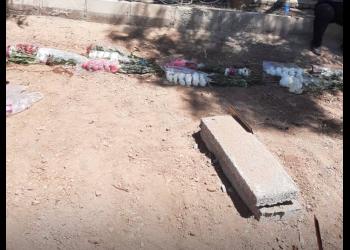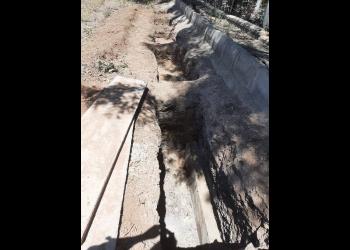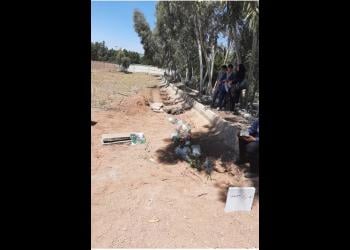Unprecedented and inhumane: More than 30 Baha’i new graves razed by Iranian authorities
Persian translation here
More than 30 new graves of deceased Baha’is at a Tehran mass grave have been razed by the Iranian authorities, with grave markers removed, and bulldozers used to flatten the resting places. The work had also been carried out to make it seem that the area did not contain any new graves.
Iran’s government has used this site to forcibly bury Baha’is for more than two years—without allowing families to be present or respecting Baha’i funeral practices. Desecrating grave sites has been a constant feature of the Iranian government’s 45-year campaign of systematic persecution of the Baha’is and follows years of harassment at the cemetery.
But razing these fresh gravesites represents an unprecedented and inhumane attack on the Baha’i community in Iran.
The remains of these Baha’is had been interred only in recent months, whereas past destructions of Baha’i cemeteries targeted sites that were several decades old.
“It’s almost Nawruz and while families who have recently lost their loved ones are still grieving their passing, the Iranian authorities impose fresh horrors on them, proving, ultimately, their utter inhumanity,” said Simin Fahandej, Representative of the Baha’i International Community (BIC) to the United Nations in Geneva. “They are destroying the graves of people who died only in the past few months, even just a few weeks ago, people whose memories are still fresh in the minds and hearts of their loved ones. No religious or cultural norm, in any part of the world, supports this kind of cruel desecration. This is cultural cleansing, through the destruction of graves and cemeteries, aiming to erase Baha’i identity from the consciousness of the Iranian people.”
Before the 1979 Islamic Revolution, Tehran’s Baha’i community owned an 80,000 square meter cemetery at Khavaran, and a 1.5 million square meter cemetery property at Kabirabad. Both properties were confiscated in the 1980s by the new Islamic Republic and at least 15,000 graves were demolished at Khavaran.
A smaller 17,000 square meter property known as Golestan Javid—adjacent to a mass grave of thousands of political prisoners executed by the government in the 1980s—was then given to the Baha’i community. But now the Baha’is also have limited access to this site. Ministry of Intelligence agents took over the cemetery in 2021 and have made it increasingly difficult for the Baha’is to use their own cemetery.
In 2022 the agents began to forcibly bury deceased Baha’is in narrow plots that were a part of the mass grave site. Iranian Baha’is were appalled at this effort to use the remains of their loved ones to erase the history of the mass grave site containing the loved ones of many other Iranians.
Baha’is across Iran have suffered repeated violations of their funeral and burial rights since the Islamic Revolution—part of a systematic plan to “block” the “progress and development” of the Baha’i community in every area of life. Reports over the decades have also emerged of cemetery desecrations in Shiraz, Sanandaj, and many other locations.
“In Iranian culture, cemeteries and places of burial are sacred as they show not only respect to the dead and their families but also as places that connote identity and culture. Through this unprecedented act of utter cruelty, Iran’s government has shown its mercilessness to those who are grieving, and even to the dead, with no regard to what is sacred,” Ms. Fahandej added. “All Iranians are suffering from many economic and social challenges—which also impact the Baha’is who cannot bury their loved ones in peace even as they are targeted by intensified and brutal new forms of persecution in recent months. Dozens of Baha’i families must bear the heartbreak of seeing the remains of their loved ones trampled on by those very authorities that should be protecting, not punishing, its citizens. The Iranian government must end its cultural cleansing of the Baha’i community, immediately, an act which further undermines its own reputation and credibility in the eyes of the world.”
